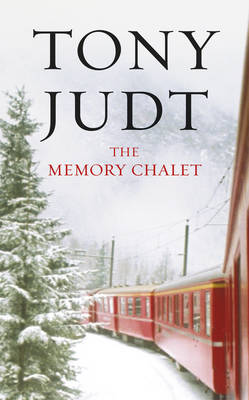 I miss Tony Judt. As I read the news every day, I speculate on what he would have to say. I was thinking of him during the mid-term elections as I listened to blatant misinformation about the Affordable Care Act coming from conservative politicians. Judt was interested in broader themes than mid-terms and health care, but his life was about intellectual honesty. He was never afraid to speak the truth, even if his position was controversial. Timothy Garton Ash makes this point quite nicely in his obituary of Judt.
I miss Tony Judt. As I read the news every day, I speculate on what he would have to say. I was thinking of him during the mid-term elections as I listened to blatant misinformation about the Affordable Care Act coming from conservative politicians. Judt was interested in broader themes than mid-terms and health care, but his life was about intellectual honesty. He was never afraid to speak the truth, even if his position was controversial. Timothy Garton Ash makes this point quite nicely in his obituary of Judt.
So I was momentarily shocked today to see – in The New York Times – an op-ed by Judt. Turns out it’s from a collection of essays, The Memory Chalet, which goes on sale this Thursday. I was pleased to see that this particular essay – on New York City — was not one that I’d already read in The New York Review, so there are more new essays to read. The New York piece is a good example of how superbly Judt could write.
According to Timothy Synder, there is also a forthcoming book that he and Judt worked on together.
In late 2008 he [Judt] agreed to compose, with my help, a long book about his life, and the life of the mind in the twentieth century. This work, which considers the major currents of twentieth-century thought, reveals the scope of Tony’s knowledge of intellectual life more vividly, I think, than anything that he had previously done. In its composition, his great pride cooperated with his great humility. As we completed six months of conversations, Tony began again to work on his own, dictating the short essays published in The New York Review, and composing the lecture on social democracy that he quickly expanded into the book Ill Fares the Land. We completed Thinking the Twentieth Century this July, a few weeks before his death.
Offending the Gods
The Amazon product description of The Memory Chalet includes a quotation from Judt that I hadn’t seen before:
It might be thought the height of poor taste to ascribe good fortune to a healthy man with a young family struck down at the age of sixty by an incurable degenerative disorder from which he must shortly die. But there is more than one sort of luck. To fall prey to a motor neuron disease is surely to have offended the Gods at some point, and there is nothing more to be said. But if you must suffer thus, better to have a well-stocked head.
As Judt said in an interview with Charlies Rose three weeks before his death, he didn’t belive in an afterlife, but he believed in something that survived. Tony Judt lives on in all those who were inspired by the brilliance of his mind and the integrity of his character.
Related links:
The dismal future of unemployment
Knowing when you’ll die: Tony Judt’s last interview
Tony Judt — continued
I am saddened by the death of Tony Judt
Having wounded the earth, we watch as she bleeds out
A generation obsessed with material wealth
Tony Judt: On the edge of a terrifying world
This mess we’re in – Part 3
Resources:
Image source: Word Power Books
Tony Judt, My Endless New York, The New York Times, November 7, 2010
Tony Judt, The Memory Chalet
Interview with Tony Judt three weeks before his death, Charlie Rose, aired August 23, 2010


“Tony Judt lives on in all those who were inspired by the brilliance of his mind and the integrity of his character.”
I have often said that the only real way to achieve immortality is to teach. And I use ‘teach’ in the broadest sense.
If we teach someone something it lives in that person until they die. And if they pass it on to another, both people then live inside that other person.
And so it goes forever……………..
I agree. And part of that broader sense of teaching is the inspiration we receive from those we admire, whether it’s through their actions, their speeches, their writings, or actual lectures. My impression of Tony Judt is that he was very demanding as a teacher. I wish I could have been his student, but I have his writings, the example he set by his intellectual honesty, and the way he chose to live his life during the last two years when he knew his death was imminent.